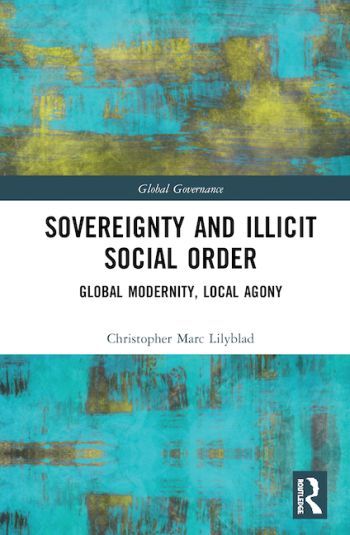
This book demonstrates how illicit social orders (established by gangs, terrorists, mafias, rebels, or other insurgent forces) arise from competition over territory, authority, and institutions in local arenas; and assesses their sobering implications for modern, national state sovereignty from the analytical vantage of global governance.
In a world where sovereignty remains the foundational principle for international order, territories ruled by gangs, mafias, rebels, terrorists, and other insurgent forces tend to be viewed as blanks on our cartographic and mental maps of global governance. Countering this narrative, Lilyblad argues that while 'illicit social orders' may not conform to the way we think our world should be governed, they actually make up a substantial part of how it is governed. This book offers a thorough account of the processes and inner workings through which illicit social orders develop and ipso facto contest sovereignty.
By showing how these inherently local illicit orders form part of a broader, diffuse mosaic of social, political, and economic structures within global society, this book will be of interest to a wide range of scholars, including political scientists, sociologists, geographers, as well as interdisciplinary social science fields, including International Development, International Political Sociology, International Political Economy, and Global Governance.